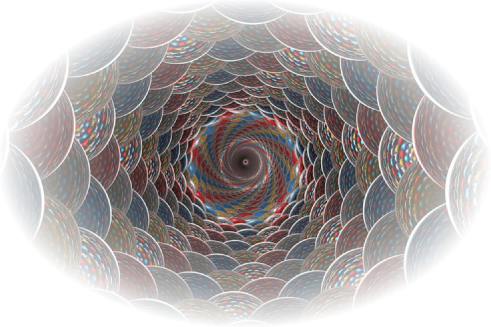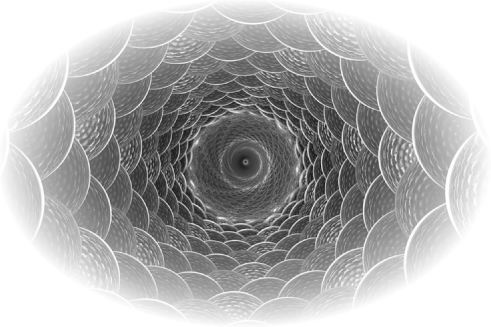Things to Consider
|
|
|
Some think of understanding as the correct interpretation of complete information. Some think of it as an almost magical dispensation of information, perhaps revealed by a higher power. Some may regard understanding as capable of saving mankind from their common plight, if only enough of it were available in mind.
According to such ideas about understanding, it is believed that it is a matter of understanding knowledge. And knowledge is believed to be a collection of information. "Oh...if one just had enough information, and understanding of how to structure it correctly, the problems we face would be gone in a flash." Religion has long followed such a path, teaching people how to live, think and feel. Science has been established to provide a more evidence-based approach.
Religion, spirituality, science, psychology and other schools of thought and philosophy have made some pretty good strides in terms of gaining agreement and at times helping to solve difficult problems. The ideas from these have whirled in the minds of humanity for millennia. In some ways, it is believed that mankind is progressing or evolving. In other ways, some very significant ways, it is pretty clear that the status quo of wave after wave of conflict is still with us, just changing to different clothing from time to time.
The reason for these repetitive waves of conflict, some of a very severe nature, is that the behavioral methods proposed by these schools of thought all involve the same thing...thought driving choice.
It is not just that they involve thought however, but that thought has been put forward to control the behavior of self and others, as well as our environment...and that this has become our way of life.
"Control" is misperception of power as being power over something or someone, which control is effected by thought processes as choices being applied to behavior. Control is an exacerbated form of the application of choice-making or judgment. "Judge not lest ye be judged." then becomes "Control not lest ye be controled."
Referring back to earlier articles, I'll just reiterate here that some of the more fundamental forms of repetitive, continuing, systematic control begins with parenting; which in turn is guided by traditions permeated with religious ideation, spiritual rhetoric regurgitation, and scientific and other evidence being produced and interpreted. And these pertain to ideas about control such as...
- What should people do?
- How should they do it?
- In what ways should people institutionalize, memorize and preserve these, and ensure that later generations do not have to reinvent the wheel but are reasonably safe...made safe by these applied control systems (a practice thought to be very necessary, and yet very unfortunate because of the foundational errors being memorized).
If we are to ever move beyond the behavior patterns we see all around us, generation after generation, we need to have understanding. It's time for us to realize that what we've called understanding for so long is not understanding...and what we've called knowledge is not knowledge. What we've called good, is not good, but is a substitute for good within a judgmental context of good versus evil. We find ourselves uniting in groups of all sorts in the attempt to find and apply just the right control measures in order to create and maintain a peaceful society. But as long as we fail to understand understanding itself, and knowledge, and come to grips with the reality of the oneness that these together are, our resistance to the conflict and related dysfunctional violent patterns is but repetitive exercises in futility.
People say they want peace...and set out in various directions, according to well-thought-out choices, to apply control in the world in such a way as to bring conflict to its knees, begging for mercy. But what we see as the overall result, is that it is we who are brought to our knees, over and over. On the surface, it seems appropriate to want peace and to set out actively against whatever seems to not be peace. There are two important things about that process however:
- Action against anything whatsoever...IS conflict. So whatever conflict is there ends up having additional conflict added to it. If control is applied according to choices and judgments agreed upon, even though such control may effect some seemingly desireable change, because we have added conflict, the underlying conflict is exacerbated. So our "solution" is stop gap and short-sighted.
- The establishment of peacefulness or nonviolence is not peace.
Stop and ponder these two things for a moment.
A worthwhile question for us to be asking ourselves is "Do we truly want to go out in the world, actively fighting against violence and corruption of every kind?" Is that really what we want? Or would we perhaps find it preferable to not have these things extant in the world in the first place?
One way of talking about the answer to that is discussing how our current modus operandi is often the opposite of trust. Whether we trust a higher power, trust the universe, or trust our own selves, it is pretty clear that there is a disconnect in terms of trust. We see and hear about evidence that the world is a violent wretched place, and we ready ourselves to go out like brave knights to kill the dragons. Perhaps we've learned skills at being less aggressive about it, but we do go out with the idea in mind that we will do something to actively remedy these conditions, pretty much head on. Fortunately, there are exceptions to this approach; however, they are few and far between...evidenced by the fact that wars, genocide, dramatic attacks, disparity, disease and starvation are the status quo, day in and day out. What that means to us is that whatever we're believing and doing is incorrect in large measure, and woefully inadequate for the balance required for simpler, easier and a less-conflicted quality of life.
Understanding is and must be that which is the most core and foundational aspect of our approach to life in our world, and as such, stands under or behind all that we think, feel and do. It must be the determiner of the quality and permanence of whatever we build as our societies and their behavior patterns. Although choices will always be a significant part of that...
- When our choices are based...
- in deep thinking
- in evidence interpretation (judgment)
- and in intellectually chosen behaviors
- we're following the same path our ancestors followed for so long, generating all sorts of conflict, dysfunction and quite literally, insanity.
- So if choice is inevitably to be part of our world and any solution (and clearly this is so), then the foundation influencing those choices must be as correct or as in keeping with the influence of our actual reality as possible. One might say that our quest to "return home" then takes on new meaning, and that meaning is life that is founded in awareness of our eternal reality.
In order for such correctness to be found and implemented, it is necessary to discover a consistent source for the foundation used. One might well question, "How do we inject a better foundation into society, assuming we find one?" Good question. The answer however is that we do not inject society with a good foundation or a good set of skills to teach in the usual sense of "doing". Instead, we...
- find the source of such a foundation
- come to grips with our conditioned resistance to that source
- implement it in our own individual lives
- and then point others toward that source.
or codified. It MUST be individually discovered, embraced and shared.
In the final result, we may find that many of the behaviors we now desire to see more wide spread, and which we now strive to practice and teach, end up being the exact same behaviors which come along with the establishment of a good foundation. The difference is trust. Who or what do we trust? Are the behaviors we're doing arising from intellectual choice as first reliance, or are they arising from a consistent, non-arbitrary, universal influence which evokes these behaviors without exacerbating natural creational conflict? Just as a building must rest upon a solid foundation, so also our chosen behaviors must rest upon a solid foundation. A foundation derived from thought processes, evaluations, consensus of opinion, etc., is not a good and solid foundation...even if the behaviors chosen are the same. It's not about the behaviors, no matter how much it seems to be. It is about our willingness to become and remain aware of our reality, the source of the only influence capable of establishing a proper foundation upon which to build that which is truly edifying. And only from a society of people who are truly edified by that influence (willingly accepted within), can behaviors be adopted that are not permeated in the substrate of their foundation with added conflict. If a religious person wants to call that God, personified in one way or another, that is fine...for over time, this same influence will bring the mind of that person to a quiet place where more and more truth becomes obviated. They will not be pushed to let go of their beliefs. But they may find that these are not as important-seeming as they were before. When the temple is filled to overflowing with the presence that influences and governs all in peace, the textbooks said to express the will of that presence are found to not be needed...whether still believed to be correct or not. When the truth brings forth more and more awareness of itself, then science, psychology, philosophy, spiritual endeavor and more, will quietly take a back seat and go along for the ride. In other words, those things previously setup and regarded as the solution mankind needed will be seen as unnecessary...as those things perceived as needing a solution fade out their conflict aspects, allowing mankind to find peace by knowing peace...their own perfect, already-existent, shared reality of self as one with all.

